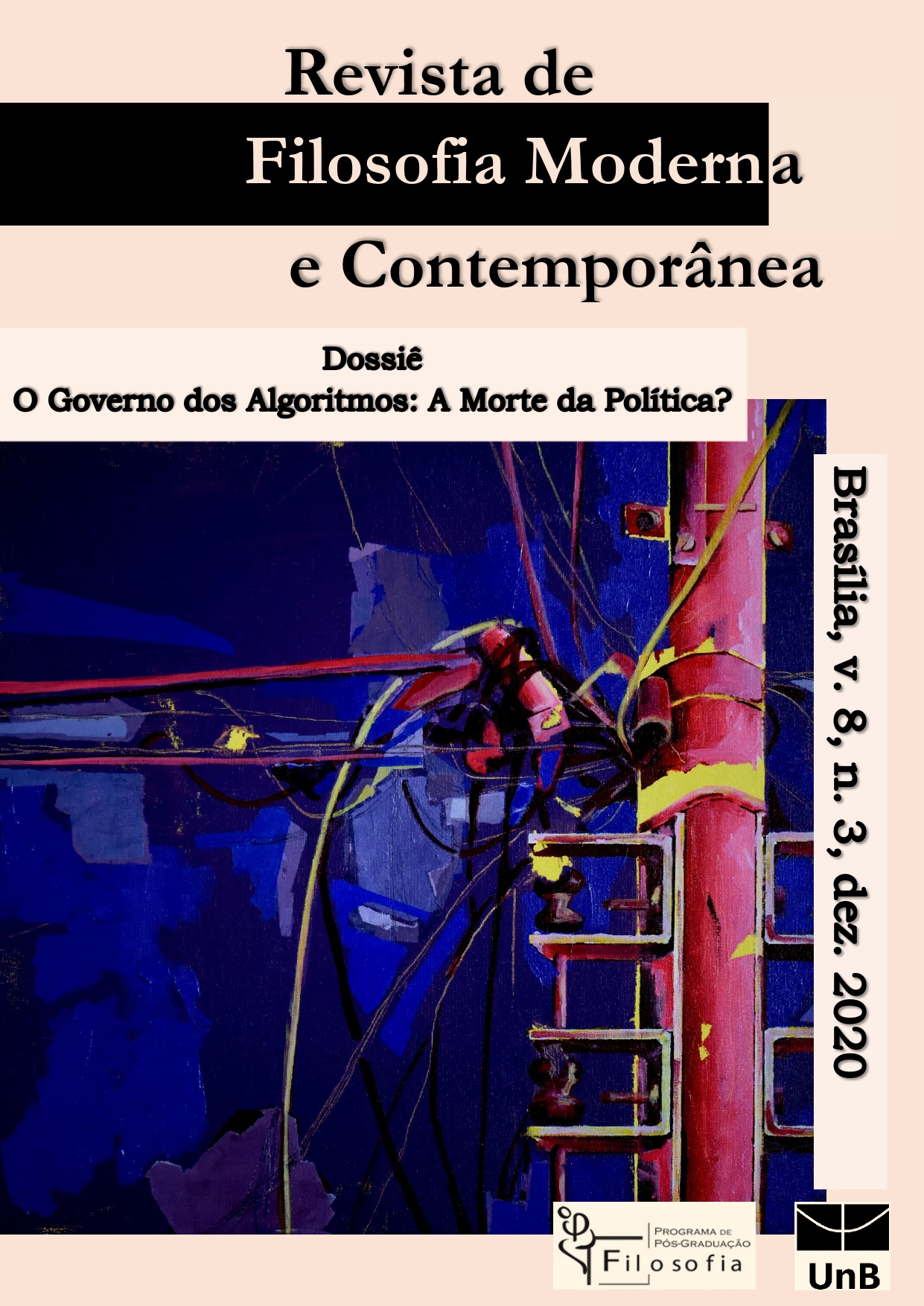"How We Became Our Data: A Genealogy of the Informational Person" de Colin Koopman
DOI:
https://doi.org/10.26512/rfmc.v8i3.34488Palabras clave:
Foucault. Informação. Poder. Infopoder.Resumen
.
Descargas
Citas
AGAMBEN, Giorgio. Che cos’è un dispositivo? Roma:Nottetempo, 2006.
BAZZICALUPO, Laura. Biopolitica. Una mappa concettuale, Roma: Carocci, 2010.
BAZZICALUPO, Laura. Dispositivi e soggettivazioni, Milano: Mimesis, 2013.
FREGA, Roberto. “Colin KOOPMAN, Pragmatism as transition. Historicity and Hope in James, Dewey, and Rorty”, European Journal of Pragmatism and American Philosophy [Online], I-1/2 | 2009.
FOUCAULT, Michel. Dits et Écrits II 1976-1988, Paris: Gallimard, 2001.
FOUCAULT, Michel. Vigiar e Punir: o nascimento da prisão; tradução de Raquel Ramalhete. Petrópolis, Vozes, 1987.
KOOPMAN, Colin. Pragmatism as transition. Historicity and Hope in James, Dewey, and Rorty, Columbia University Press, New York, 2009.
KOOPMAN, Colin. “Genealogical pragmatism: how history matters for Foucault and Dewey”. Journal of the Philosophy of the History, 5 (2011), pp.533-561, Leiden - Brill NV, 2011.
KOOPMAN, Colin. Genealogy as Critique: Foucault and the Problems of Modernity, Indiana University Press, 2013.
KOOPMAN, Colin. How We Became Our Data: A Genealogy of the Informational Person. Chicago: University of Chicago Press, 2019.
Descargas
Publicado
Número
Sección
Licencia
Derechos de autor 2021 Revista de Filosofia Moderna e Contemporânea

Esta obra está bajo una licencia internacional Creative Commons Atribución-NoComercial-SinDerivadas 4.0.
Los derechos de autor para artículos publicados en esta revista son del autor, con derechos de primera publicación para la revista. Debido a que aparecen en esta revista de acceso público, los artículos son de uso gratuito, con atribuciones propias, en aplicaciones educativas y no comerciales.


